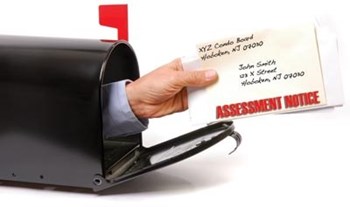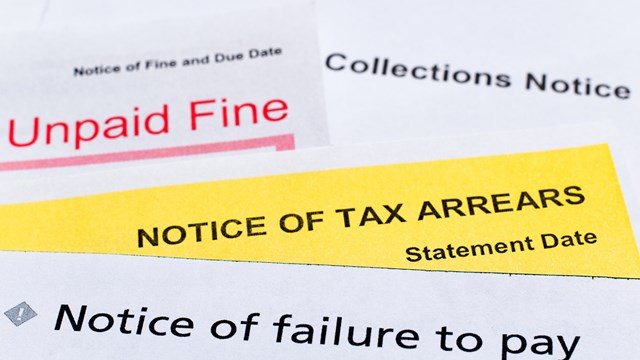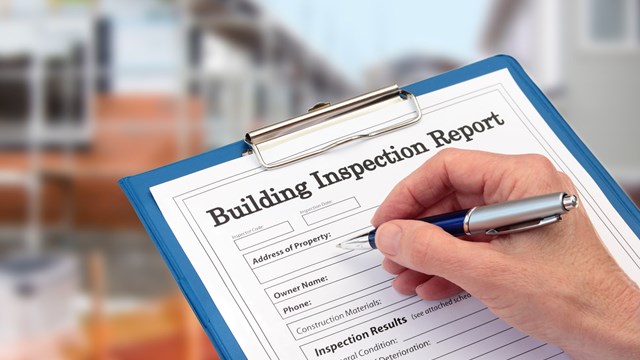
Money is a topic people are often skittish about discussing—especially when the discussion involves rising fees, or having to pay more money for something. When you’re a board member or the property manager of a condo building or residential association however, there’s no benefit to skirting financial realities just because they may be difficult or contentious. On the contrary, not talking openly and candidly about a community’s financial picture, or the need for a special assessment or fee increase can have serious consequences for the entire community.
A Necessary Evil
Nobody likes fee increases or even one-time assessments—but both are periodically necessary in order to keep a community or building financially solvent. Special assessments come up to make an unforeseen repair, or for some other expense outside the scope of either the normal operating budget or replacement reserve funds.
Those projects could include emergency situations like major storm damage, a sudden HVAC system breakdown, or a code violation of some sort that must be addressed ASAP. In such cases, an HOA board usually has the power to impose an assessment unilaterally, without soliciting input from residents. On the other hand, a board usually does need unit owner approval if they want to do a special assessment for something large but non-essential—i.e., to build a new tennis court or to spruce up the building lobby.
According to the New Jersey Condominium Act, under section (e) The association may levy and collect assessments duly made by the association for a share of common expenses or otherwise, including any other monies duly owed the association, upon proper notice to the appropriate unit owner, together with interest thereon, late fees and reasonable attorneys’ fees, if authorized by the master deed or bylaws.”
And be sure you’re on solid legal ground, according to Attorney Ronald L. Perl, a partner with the law firm of Princeton-based Hill Wallack, LLP. “There are firm rules about how much a board can spend without resident approval,” Perl says. Sometimes the board’s lawyer may be tasked with finding ways to interpret those documents to meet the need of the particular situation in question. That’s a very dangerous way to do business.
“If it looks like you’re going to require the vote of the owners, don’t try to fit a square peg in a round hole. Have the vote of owners,” Perl says. And if the vote fails and the board still feels this particular change needs to be made, they can create a legal action, inform the residents that they have done so, present the pertinent information to a judge, and ask the judge to make a ruling that shows that the work must be done. In situations where there is a significant stalemate between the board and residents, seeking a judgment before vendor contracts are signed or financing is taken out to do a job is far more preferable than starting the job and having residents take legal action after everything already in motion, he says.
But for the most part, says Abe Kleiman, a managing partner with Kleiman & Weinshank LLP, an accounting firm in New York City, boards don't pass an assessment to pay for fresh-cut flowers in the entry vestibule. "You need the money quickly, so just raising the common charges won't cover your capital requirements.”
Communication is Everything
Whether an assessment is for something pressing or for something aesthetic, any property manager worth his or her salt will tell you that clear, timely communication is one of the most crucial components when it comes to getting residents on board, says Mary Ann Hallenborg, a real estate attorney and professor at Drexel University's Goodwin College of Professional Studies in Philadelphia.
"Everyone can budget for a monthly maintenance fee because they know exactly what it's going to be,” she says. “A) a special assessment is a bit of a wild card [for residents]. They don't know how much they're going to be and B), they don't know if it's going to be imposed in one lump sum or installment-payment fashion." So it's important to prepare shareholders for the need of special assessments, and run the process with as little conflict as possible.
"Constant communication from the very beginning to the very end is key," says one New Jersey manager. "Let association members and residents know what their financial picture is—not just by presenting copies of the audit, but by having the accountant come to a meeting and explain to the membership what their financial position is. Let the budget process be a true and accurate picture of what the budget should be for each year. Make sure that your reserve studies are properly updated on a routine basis. Take all of those components and educate the membership by saying, 'These are the things we need to do to be sure we are a financially sound association.'"
Kleiman agrees. "Communication is probably the best method of keeping people informed,” he says. “Obviously, everyone resists paying additional money, but if you've communicated the need for the assessment, and people understand what it's being used for and why it's needed, that's half your battle. When I go to shareholder and association member meetings, that's the biggest gripe that shareholders and unit owners have; that board members and management aren't communicating with them."
But it's not always easy to keep people informed. Some people just want to get home from work, spend time with their families, relax and not get involved with what their board is doing—until the bill comes around anyway. Calling meetings to discuss every talking point of a proposed assessment is probably not the best approach. "Newsletters are a great idea, just to keep people apprised of what's going on," Hallenborg says. "They're a good place to give people a heads-up that a special assessment might be required at some point in the future, and that your board will do everything to minimize it. If people have some idea of what's coming, they're better prepared to put money aside for it."
Boards should also keep in mind that they can't just impose special assessments randomly. An association's bylaws will determine how they need to be levied. Hallenborg says that in some cases, a vote of all shareholders may be required before an assessment can be made: "[That's] a little unusual, but it does happen," she says. "It has to be done properly, or a unit owner or shareholder could attack it down the road. And if there's reluctance to pay and the board tries to enforce their right to payment, the unit owner or shareholder will put up every defense they possibly can."
Even if it's not mandated by an association's bylaws, consulting residents as to whether they would prefer to raise monthly fees rather than be hit with one big lump-sum assessment can also help soften the impact. After all, people are more apt to be more cooperative if they feel they've been included in the decision-making process and not simply presented with a bill.
“Education, understanding and sympathy should be the modus operandi,” says one attorney who works regularly with condos and co-ops. “Owners deserve to know why the increase or assessment is necessary. The residents should receive a memo detailing what caused the increases—for example, an increase in oil costs, or an increase in taxes and insurance. The memo should start with a statement that the board understands that these are tough times, and should also demonstrate the board’s efforts to avoid the increase.”
Other Options
In addition to being necessary, assessments themselves should be reasonable—and boards should be flexible enough to consider an array of options. Finding a way to make assessments realistic for owners is every bit as crucial as communicating the reasons for them in the first place – and passing an assessment that residents simply can't pay only creates more problems, say the pros.
If after much deliberation a board decides against a general maintenance increase or special assessment, there are other ways for HOAs to generate extra money. Popular strategies include charging late fees on unpaid maintenance, transfer fees for sales and leases, or rental fees for using common rooms or other facilities. Or perhaps, the project could be funded through a combination of a loan, use of some reserve funds and a small or moderate special assessment.
Another more drastic option is to scale back or even eliminate certain amenities in order to save money on their maintenance. According to management and legal experts, this is something of a nuclear option; if residents are promised certain amenities or perks upon buying into a condo or HOA, it's tricky business to eliminate those amenities without incurring resident wrath and possible legal trouble.
Still, it's not impossible—and sometimes it just makes good business sense. One manager mentions a building in his company's portfolio that was advertised by the developer as having a 24-hour concierge service, which was certainly a nice amenity – but which was costing the building $160,000 annually. “The suggestion was to scale it back, and have more of a security officer or desk agent who wouldn’t be there 24 hours a day,” he says. While the residents missed the convenience of the concierge, they certainly didn't mind saving six figures and avoiding an assessment.
Judicious planning can also help minimize both the need for assessments and the amount of assessments when alternatives simply aren't viable, says Jules Frankel, a shareholder with Wilkin & Guttenplan P.C. in East Brunswick. “The most common reason for event-related assessments in New Jersey is snow. We service 750 communities, and last year about two-thirds of the communities we serviced did snow assessments. The idea is that residents will benefit from a service, so that's not what I would call a bad special assessment. The assessments that are probably the most painful are the ones needed to do major repair and replacement projects like roofs, sidewalks, and curbing.”
Get Real
Regardless of how the funds are raised, the important thing to remember is that while residents may love the idea of permanently low monthly fees and no assessments, and boards may be loath to make an unpopular decision, keeping charges artificially low is a recipe for disaster.
“Probably the most difficult issue is getting board members to separate their responsibilities to run the building with the desires of the shareholders and their personal issues,” says one accountant. “Getting them to focus on making decisions based on professional input and not the personal objectives of the most vocal residents is one of the most difficult issues to deal with.”
"Ultimately," says Kleiman, "it comes down to the management style of the board or building. Oftentimes, a new board just picks up where the old board left off, and boards resist special assessments because their constituents—the shareholders and unit owners—also resist large assessments."
Be as that may, even small maintenance issues like a ripped lobby carpet or an ailing hedgerow that aren't fixed promptly can deteriorate to the point where the entire carpet or the whole hedge must be replaced at far greater cost than doing a little repair work. It's up to the manager to encourage the board to adopt a realistic, break-even operating budget every year, and to be confident enough to tell it like it is when it comes to smart financial planning.
And the stakes are high. Things like façades and elevator inspections must be kept current and compliant with municipal and state codes; if they're not, the association may be issued a violation—which can eventually mean costly fines. Property managers warn that too many violations could cause problems for residents looking to sell or refinance their units. For that reason, assessments—however irksome they may be at the time—are actually insurance on the continuing value of units and the association itself.
“What I stress to my boards, both co-op and condo,” Kleiman continues, “is that the assessments be properly designated. If it's for operating expenses, state that it's for operating expenses. If it's for capital improvements, replacements of components of the building, it ought to state that. A capital assessment gets a different treatment from an operating assessment from a tax perspective. As a general rule, improvements would increase the value of a property, but it's not necessarily so—an assessment may not necessarily raise the value of your apartment, but it's a method of raising capital to do whatever improvements are needed in the building. As a general rule, a building that's better maintained has a greater value."
Be Smart
It's tempting for a board to cling to a strategy of spending as little as possible to preserve cash and keep fees low, but according to managers and financial pros alike, maintenance deferred too long and fees kept artificially low can backfire. “There are no short-term fixes,” says Frankel. “The long-term fix is that associations should have reserve studies done on a periodic basis every three to five years. They ought to meet with the engineer who does the study and then they ought to spend in accordance with the study. Not all, but certainly the majority of the special assessments we see are charged because boards were not diligent in putting aside money over the years to make repairs and replacements, didn't have an updated reserve study, or didn't follow the engineer's recommendations.”
Ultimately, assessments for whatever reason should be presented to unit owners in such a way that everyone can understand why they’re necessary. Information should be readily accessible to homeowners so there are no secrets or surprises, and so that they not only understand their immediate financial picture, but also the long-term financial health and well-being of their community as a whole.
Bernadette Marciniak is a freelance writer and a frequent contributor to The New Jersey Cooperator.






2 Comments
Leave a Comment